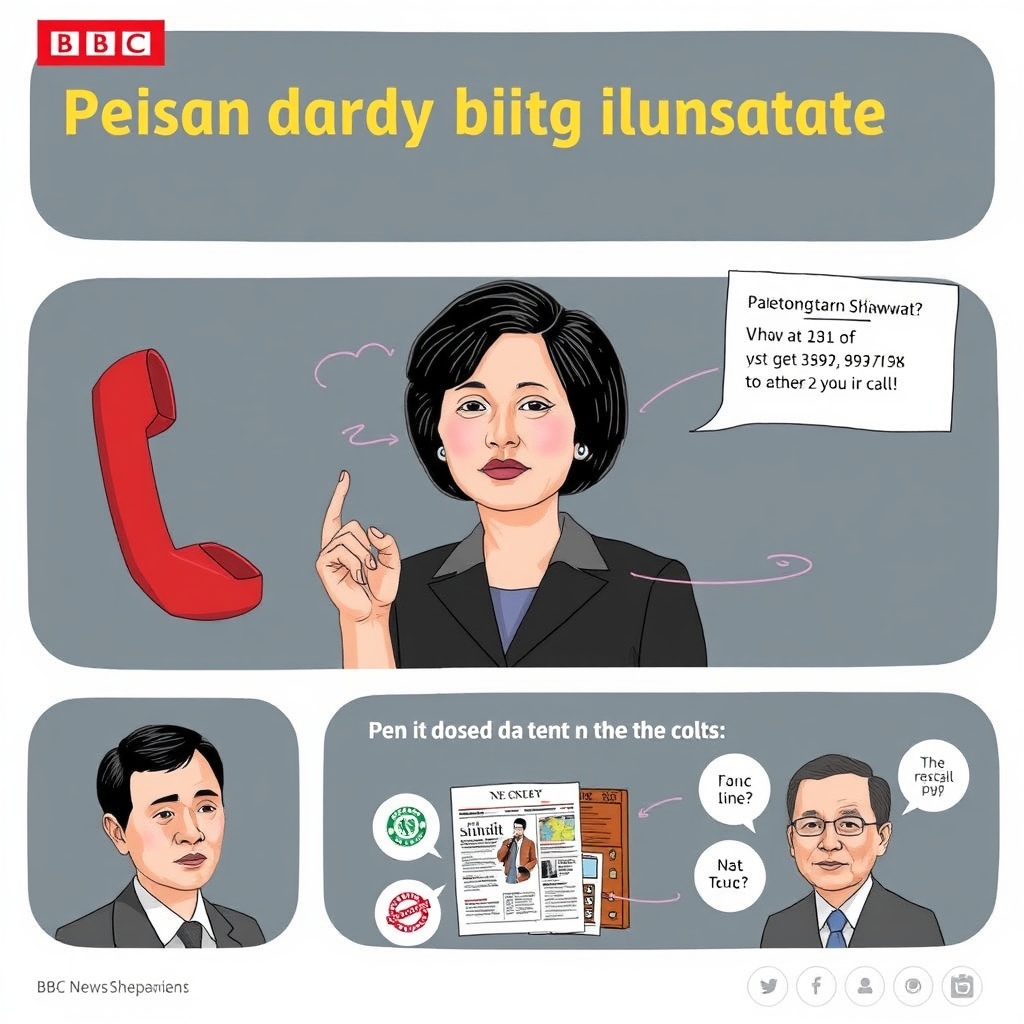Introduction
Thailand, a country known for its rich culture, beautiful beaches, and vibrant cities, has been embroiled in a political storm in recent times. The latest development in this saga is the suspension of Prime Minister Paetongtarn Shinawatra, a move that has sent shockwaves throughout the nation. This article will delve into the details surrounding Paetongtarn Shinawatra's suspension, the factors that led to this decision, and the potential implications for Thailand's political landscape.
Background to the Crisis
To understand the context of Paetongtarn Shinawatra's suspension, it is essential to look at the events that have unfolded in Thailand over the past few years. The country has experienced a period of political instability, with various factions vying for power and influence. The Shinawatra family, to which Paetongtarn belongs, has been a significant player in Thai politics for decades. However, their involvement has not been without controversy, with allegations of corruption and abuse of power leveled against them.
The current crisis began when a leaked phone call surfaced, allegedly featuring Paetongtarn Shinawatra discussing matters that could be perceived as inappropriate or unethical for a prime minister. The content of the call sparked outrage among the Thai public and opposition parties, who demanded that Paetongtarn Shinawatra be held accountable for her actions.
The Role of the Constitutional Court
The Constitutional Court of Thailand has played a crucial role in the suspension of Paetongtarn Shinawatra. The court is responsible for interpreting the constitution and ensuring that the government and its officials act in accordance with the law. In this case, the court is considering a petition for Paetongtarn Shinawatra's removal from office, which was filed by opposition parties and concerned citizens.
The petition alleges that Paetongtarn Shinawatra has engaged in behavior that is incompatible with the office of the prime minister. The court's decision to suspend her pending the outcome of the petition is a significant development, as it indicates that the judges believe there is sufficient evidence to warrant further investigation.
Statistics on Public Opinion
A recent poll conducted by a leading Thai newspaper found that over 70% of respondents believed that Paetongtarn Shinawatra should resign as prime minister. This statistic highlights the depth of public discontent with her leadership and the perceived impropriety of her actions. Furthermore, the poll revealed that nearly 60% of respondents had lost faith in the government's ability to address the country's problems, underscoring the need for urgent reform.
Implications for Thailand's Political Landscape
The suspension of Paetongtarn Shinawatra has significant implications for Thailand's political landscape. If the Constitutional Court ultimately decides to remove her from office, it could lead to a period of instability and potentially even violence. The Shinawatra family has a large and dedicated following, and their supporters may react angrily to any attempt to remove them from power.
On the other hand, the removal of Paetongtarn Shinawatra could also be seen as an opportunity for reform and renewal in Thai politics. The country has long been plagued by corruption and cronyism, and the departure of a controversial leader could pave the way for a more transparent and accountable government.
Case Study: The 2014 Coup
Thailand has experienced numerous coups and periods of political upheaval in its history. One notable example is the 2014 coup, which saw the military seize power and impose a strict regime on the country. The coup was widely condemned by the international community, and it had a devastating impact on Thailand's economy and reputation.
However, the 2014 coup also highlights the resilience and adaptability of the Thai people. Despite the challenges they faced, the country was able to recover and rebuild, with the economy eventually returning to growth. This experience serves as a reminder that Thailand has the capacity to overcome even the most significant crises, and that the current situation can be resolved through a combination of leadership, diplomacy, and popular will.
The Way Forward
As Thailand navigates this difficult period, it is essential to consider the way forward. The country needs a government that is accountable, transparent, and committed to the welfare of all its citizens. The suspension of Paetongtarn Shinawatra is a significant step towards achieving this goal, but it is only the beginning.
The international community also has a role to play in supporting Thailand during this time. Diplomatic efforts can help to facilitate dialogue and negotiation between the different factions, while economic assistance can help to stabilize the country and promote growth.
Example: The Role of ASEAN
The Association of Southeast Asian Nations (ASEAN) has played a crucial role in promoting regional stability and cooperation. In the context of Thailand's current crisis, ASEAN can provide a framework for dialogue and negotiation between the different parties. The organization's emphasis on consensus-building and collective decision-making can help to foster a sense of unity and shared purpose, which is essential for overcoming the challenges that Thailand faces.
Conclusion
The suspension of Paetongtarn Shinawatra as Prime Minister of Thailand is a significant development in the country's ongoing political crisis. The leaked phone call that sparked the controversy has highlighted the need for greater transparency and accountability in government, and the Constitutional Court's decision to consider a petition for her removal is a step towards achieving this goal.
As Thailand looks to the future, it is essential to consider the implications of this crisis and the opportunities that it presents. The country needs a government that is committed to the welfare of all its citizens, and that is willing to work towards a more transparent and accountable future. With the support of the international community and the resilience of the Thai people, it is possible to overcome the challenges that lie ahead and build a brighter future for Thailand.


Leave a comment